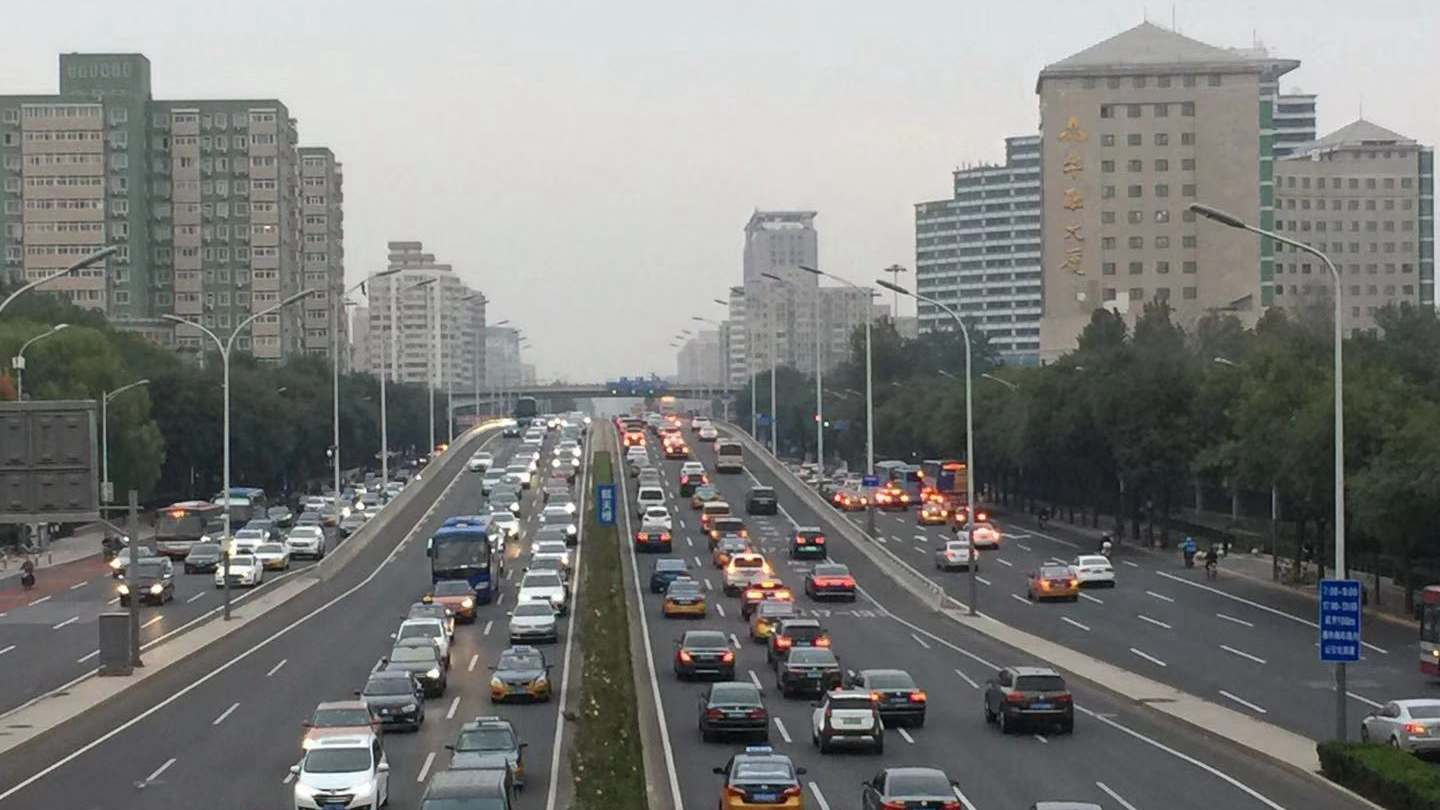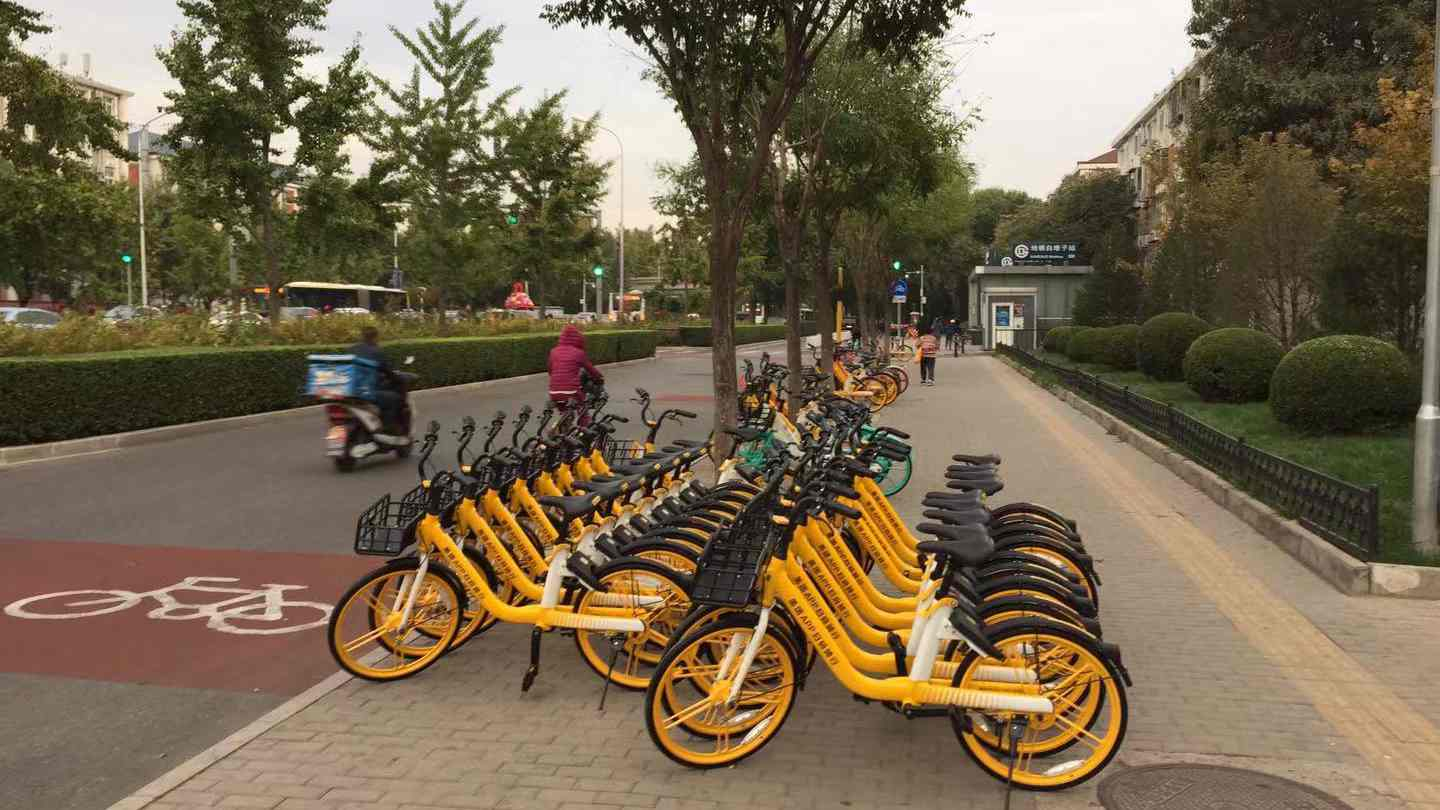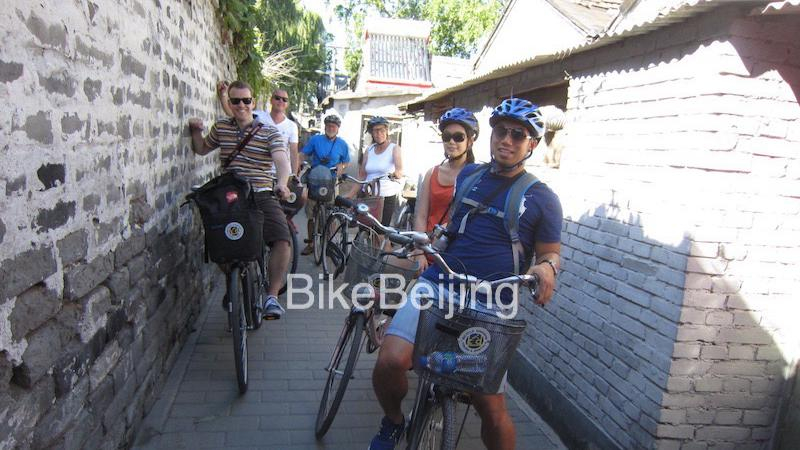In the 1970s, a bicycle was an essential luxury for most families. Buying one made a huge dent in the household budget, but it was also the most convenient means of transport for short distances. The family bicycle was a treasure, lovingly kept and maintained for many years – even decades.
As for the children, they discovered that cycling could be great fun. In fact, it was rare for anyone to make it to adulthood without learning to ride a bike. Bicycle repair "shops" – often nothing more sophisticated than a single repairman with a few simple tools sitting beside the road – were everywhere. At that time, China truly was the kingdom of bicycles.
However, the reform and opening-up launched in 1978 heralded a decline in the popularity of the bicycle. Chinese people began to enjoy significant economic prosperity and now, decades later, an urban family is just as likely to own a car.
But there are still those who appreciate the pleasure and benefits of getting about on two wheels. In Beijing, it is common to find broad bicycle lanes running alongside the streets. Here, cyclists escape the rush hour traffic jams that blight the motorist's day.

Cars have taken over bicycles as the main means of transport in Beijing. / CGTN Photo
Cars have taken over bicycles as the main means of transport in Beijing. / CGTN Photo
In such times, cyclists feel like kings or queens, sweeping past the almost motionless cars. In places where traffic jams force the drivers to trespass into the bicycle lane, cyclists can still thread their way between the cars.
Reinforcing the renewed appeal of cycling are the shared bikes that were introduced a few years ago. OFO was the first in the market, followed by Mobike. And new brands are continuing to make their appearance. There's no longer any need to keep a bike at home. You just pick one up where you need it and cycle to your destination; for example, from your workplace to the nearest subway station or bus stop. In Beijing, shared bikes are available pretty much everywhere, and that too at a minimal cost.

Shared bikes parked at a pavement in Beijing. / CGTN Photo
Shared bikes parked at a pavement in Beijing. / CGTN Photo
So, is China rediscovering the joy of cycling?

A group of cycling enthusiasts pose for a photo. / Photo by BikeBeijing
A group of cycling enthusiasts pose for a photo. / Photo by BikeBeijing
"Almost the entire route was shaded, so cycling was very comfortable. Traffic was a non-issue,”said Sherry.
Sherry was exploring Beijing by bike, courtesy of an internet-based organization whose website reads, "Beijing is built for bicycles, the city is flat like a pancake, wide dedicated bicycle lanes are there at each side of every street."
Scientific research has shown that cycling is one of the healthiest daily forms of exercise, which begs the question: Why are more and more people choosing to own a car instead of a bicycle?
According to a Chinese saying, "It's easy to go from thrift to extravagance, but difficult to return."
My 18-year-old daughter learned to ride a bicycle when she was three, and has been a keen cyclist ever since. Recently, however, after being given a ride in a luxury car, she told me she was thinking of learning to drive.
Fair enough. I just hope that, even after she starts driving, she'll still remember that there's a time and a place where the bicycles still rule as kings.
As for me, I treasure my bicycle, and I have no intention of ever buying a car.